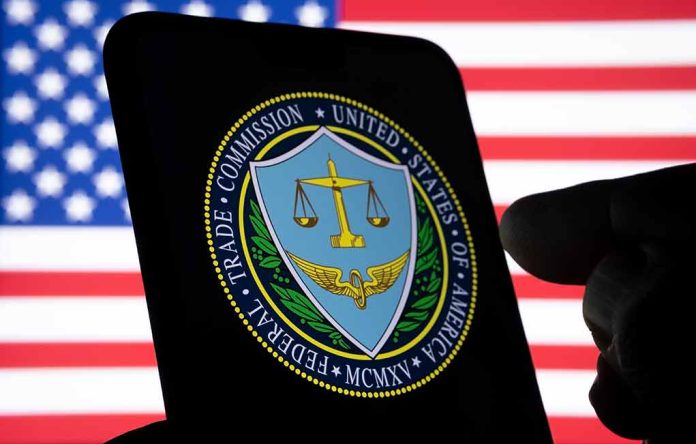
The FTC is cracking down on eye care prescribers who have been denying patients their legal right to their own contact lens prescriptions, potentially forcing consumers to pay higher prices by limiting where they can purchase lenses.
Key Takeaways
- The FTC has sent 37 warning letters to contact lens prescribers for potential violations of the Contact Lens Rule
- Prescribers must provide patients with their prescriptions after fittings without charging additional fees
- Eye care providers cannot require patients to purchase contact lenses from them
- Violations can result in civil penalties up to $53,088 per violation
- The actions aim to promote consumer choice and price competition in the contact lens market
Federal Overreach or Consumer Protection?
The Federal Trade Commission has escalated its enforcement actions against eye care providers by issuing 37 warning letters to contact lens prescribers suspected of violating federal consumer protection rules. These letters target practices that may be unlawfully withholding prescriptions from patients who are legally entitled to them. The Contact Lens Rule explicitly requires prescribers to automatically provide patients with copies of their prescriptions after a fitting without making them request it, sign waivers, or pay additional fees. Despite these longstanding requirements, the FTC continues to receive complaints from consumers unable to exercise their right to shop around, According to The Federal Trade Commission.
The regulatory agency has also sent a letter to Spectrum Vision Partners, LLC, closing an investigation but warning them to comply with both the Contact Lens Rule and the Eyeglass Rule moving forward. According to the FTC, Spectrum Vision Partners had been investigated for potentially charging additional fees to patients who wanted copies of their prescriptions, a clear violation if those fees were selectively applied. While the FTC’s warning letters do not constitute formal determinations of rule violations, they serve as the first step in what could become more serious enforcement actions.
Financial Consequences for Non-Compliance
Eye care providers who ignore these warnings do so at their financial peril. The FTC has made it clear that violations can result in legal action including administrative subpoenas and civil penalties reaching up to $53,088 per violation. This aggressive enforcement posture suggests the Biden administration’s FTC is continuing to expand regulatory oversight into various business sectors. For many conservative observers, this represents yet another example of government agencies extending their reach into private business operations, potentially increasing compliance costs that will ultimately be passed on to consumers through higher prices.
The economic impact of these regulations cuts both ways. On one hand, by enforcing rules that allow consumers to shop around for the best prices on contact lenses, the FTC may help reduce costs for the average American struggling with inflation. On the other hand, the compliance burden falls disproportionately on small, independent eye care practices that may not have the administrative resources of larger corporate entities. These small businesses are already facing significant challenges from online retailers and big-box stores that can offer contact lenses at lower prices due to their scale and reduced overhead Stated Biden Administration.
Consumer Rights vs. Medical Oversight
At the heart of this regulatory action is a tension between consumer autonomy and professional medical oversight. Optometrists and ophthalmologists have long argued that maintaining control over where patients purchase their contact lenses ensures proper medical supervision and reduces the risk of complications from improper lens use. However, the FTC’s position emphasizes consumer choice and market competition as paramount concerns. The Contact Lens Rule specifically prohibits prescribers from forcing patients to buy lenses from them, reflecting the agency’s view that eye care professionals should not have a captive market for their products Stated FTC
For consumers seeking to exercise their rights, the FTC has provided guidance on its website and encourages reporting any violations through ReportFraud.ftc.gov. The agency’s emphasis on education suggests that many Americans may be unaware of their entitlements when visiting eye care providers. Patients should know that after a refraction exam, they are legally entitled to receive their prescription immediately, without having to ask, pay extra, or purchase anything. This knowledge empowers consumers to make informed choices about where to spend their hard-earned money in an economy already strained by inflation and rising healthcare costs.




